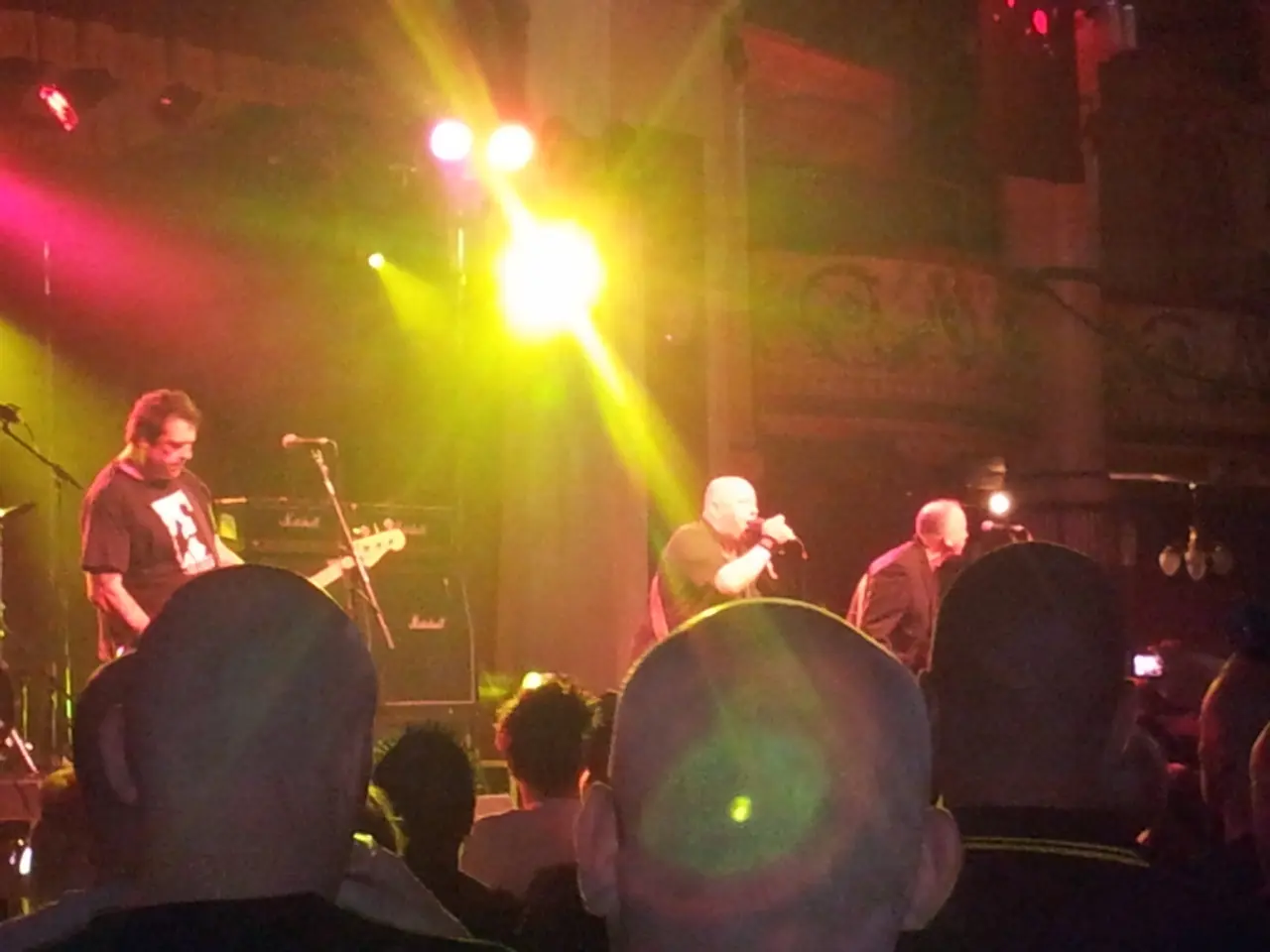Life Story of Elvis Presley
Elvis Presley's Formative Years: The Making of the King of Rock and Roll
In the small town of Tupelo, Mississippi, a young Elvis Presley's life was about to take a musical turn. In 1942, his family moved to the town, settling on Berry Street, and a few years later, they shifted to Tupelo's version of Poverty Row.
During his teenage years, Elvis was influenced by a diverse range of musical styles that would shape his unique sound. His early musical tastes were shaped by country singers like Hank Snow, Roy Acuff, Ernest Tubb, Ted Daffan, Jimmie Rodgers, Jimmie Davis, and Bob Wills. He was also drawn to gospel music, particularly the style of Jake Hess, whose ballad-singing style Elvis admired and emulated.
Elvis was exposed to blues and rhythm & blues through radio stations like WDIA, which played "race records" that included spirituals, blues, and modern rhythm & blues. Local African-American musicians such as Arthur Crudup and Rufus Thomas further influenced him. The vibrant blues scene on Beale Street, the heart of Memphis, also had a significant impact on him.
Elvis's musical influences combined to create a blend of rockabilly, country, blues, and gospel, which would eventually become the hallmark of his career as the "King of Rock and Roll."
Oleta Grimes, Elvis's fifth-grade teacher, encouraged him to participate in a radio talent contest at the Mississippi-Alabama Fair and Dairy Show. In seventh grade, Elvis began bringing his guitar to school during lunch, a move that changed his social status. He would often play "Old Shep" without accompaniment, but contrary to legend, he did not place second in the talent contest. He may have placed fifth, but probably did not win a prize.
Elvis's family moved out of East Tupelo into Tupelo and lived on Poverty Row. Despite their financial struggles, Elvis's mother, Gladys, bought him a guitar for his birthday, which he used to sing and play on the WELO Saturday Jamboree. Mississippi Slim, the star of the Jamboree, backed Elvis on guitar, taught him new chords, and songs.
Despite being looked down upon by some white classmates and being an intruder within the local black community, Elvis was drawn to the music he heard there. His experiences in Tupelo during his teenage years played a significant role in forming his own personal style.
In 1940, the Presley family relocated to the Mississippi Gulf Coast due to increased work opportunities from World War II. However, they returned to East Tupelo a month later, missing their family and friends. Vernon Presley bought a four-room house on Berry Street, which was later sold by Orville Bean, who had previously landed Vernon in jail.
Throughout these moves, Elvis's father, Vernon, spent most of 1942 living apart from the family in Mississippi, Alabama, and Memphis, Tennessee. Despite these challenges, Elvis continued to nurture his love for music, laying the foundation for his future success.
Elvis's exposure to various music styles expanded beyond country and gospel, as he was captivated by the beats of blues and rhythm & blues from radio stations like WDIA and local musicians such as Arthur Crudup and Rufus Thomas.
As he honed his unique sound, incorporating elements of rockabilly, country, blues, and gospel, Elvis looked up to celebrities within the music industry, notably those influencing the blues scene on Beale Street in Memphis.








